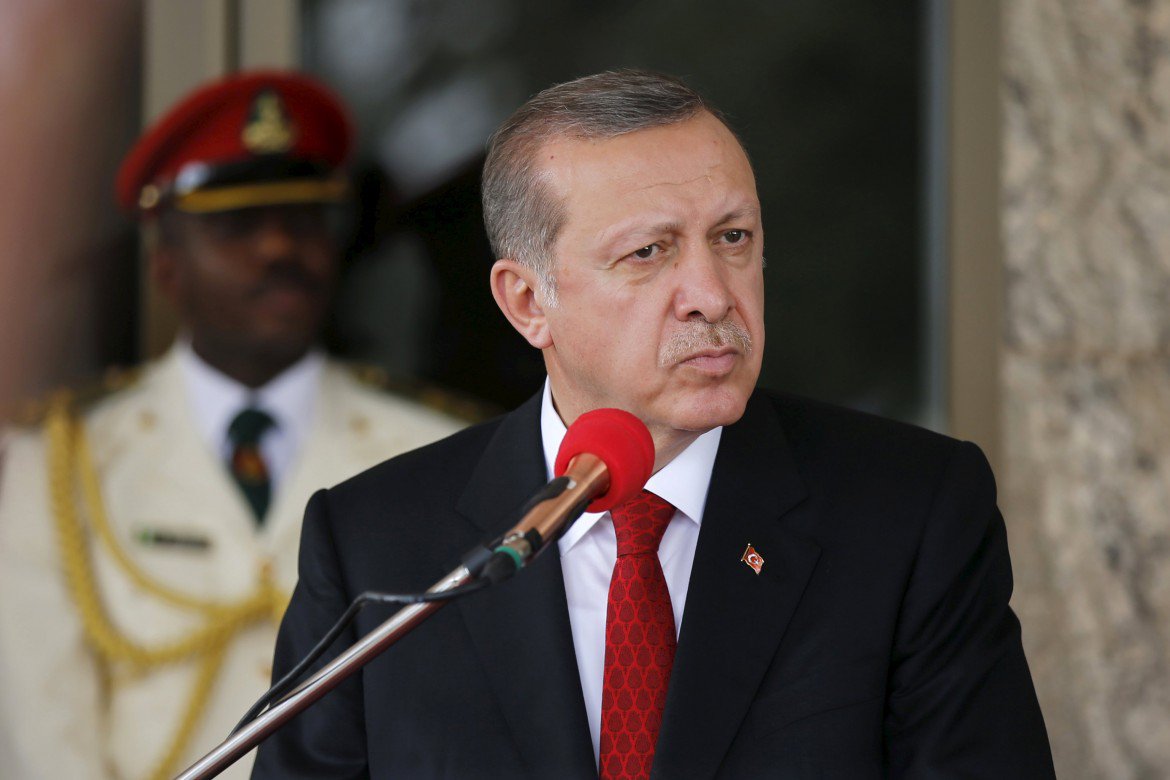Analysis
Erdogan’s war against the Kurds creating an arms boom
Turkey’s weapons sector is enjoying a $5.9 billion gift thanks to President Recep Tayyip Erdogan’s war against Kurds.

Turkey tests its weapons before it sells them.
The Turkish Defense Industry Executive Committee approved new military projects worth $5.9 billion, a stimulus of the country’s weapons industry that Prime Minister Ahmet Davutoglu announced with fanfare on Thursday. He said $4.5 billion of the total will finance domestic projects.
Domestic production will give a significant boost to the nation’s largest conglomerates, which are experiencing a boom thanks to the government’s anti-Kurdish campaigns. In the first two months of the offensive, Turkish arms production increased by 35 percent. On the front lines, buyers are interested in missile-armed drones.
“The mass production of our locally developed infantry rifles will start by this year,” Davutoglu said, according to the Hurriyet Daily News. “We also assessed the latest developments regarding the production of the joint warplane. Our air defense system project will continue without any interruption. Plus, we have reached a great point in drone production as we do not need foreign technologies anymore.”
Ankara is building up its own capabilities after a deal with a Chinese company that was supposed to supply an anti-missile defense system and long-range missiles was torpedoed in November. The contract instead went to two Turkish companies. In 2015, the government hired Turkish Aerospace Industries to build its ATAK helicopter.
Production is in full swing, Davutoglu says, and will not suffer delays due to the government’s war on the Kurdistan Workers’ Party (PKK). In fact, Ankara may soon deploy its latest military product: 250 Altay tanks, a product of Otokar, a subsidiary of Turkey’s wealthiest conglomerate.
The anti-PKK campaign, now entering its eighth month, shows no sign of stopping. The Turkish Army declared its operations in Cizre and Sur were over, and yet violence continues to crush other predominantly Kurdish cities in the southwest of Turkey. While displaced Cizre families returned home to dig bodies from the rubble, two days ago new operations commenced in the town of Yuksekova, in eastern Turkey bordering Iran.
There the streets are occupied by a massive deployment of police and army forces, raining an almost uninterrupted stream of artillery shells. For now there’s no official curfew, but the entry points to one district of the town is blocked by armored vehicles.
And despite what the government says, there is still fighting in Sur. Saturday will be the 100th day of continuous curfew, a siege that has disrupted the lives of the population of Diyarbakir. The fighting has devastated the city’s most beautiful district, an UNESCO heritage site, where 80 percent of buildings were destroyed or damaged, according to the opposition party People’s Democratic Party (HDP). The roar of explosions and black smoke rising from the rubble is an incessant reminder that the campaign continues.
Turkey is also continuing its covert campaign against the Syrian Kurds. In northern Syria, Ankara is providing support to Islamists who are fighting the YPG, the armed wing of the Syrian Kurdish Democratic Union Party. According to recent news reports, Turkey is providing safe transit for trucks crossing the Turkish border into territory held by al-Nusra Front. YPG spokesman Redur Xelil claims the shipments contain chemical weapons, which have been deployed against YPG positions near Aleppo.
The explosions emit an “unnatural odor and a yellow smoke,” says Xelil, referring to the hallmarks of sarin. “Our sources inside the rebel militias confirm the use of toxic substances,” he says. “We then verified the information that sarin gas arrived from Turkey.” Last month the Organization for the Prohibition of Chemical Weapons accused ISIS of using chemical weapons in 2015 against Kurdish forces.
Originally published at http://ilmanifesto.info/ankara-testa-le-armi-sui-kurdi-e-poi-le-vende/ on 2016-03-11
